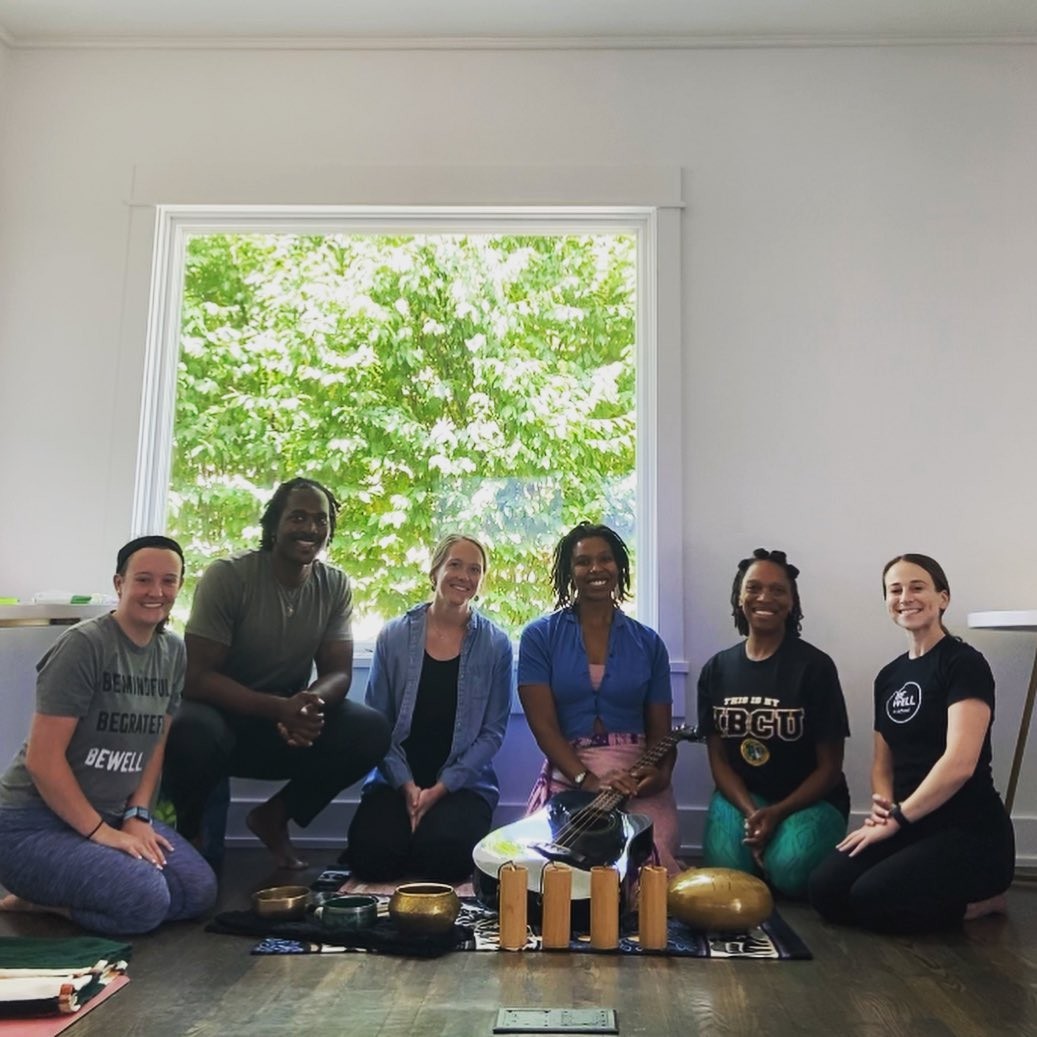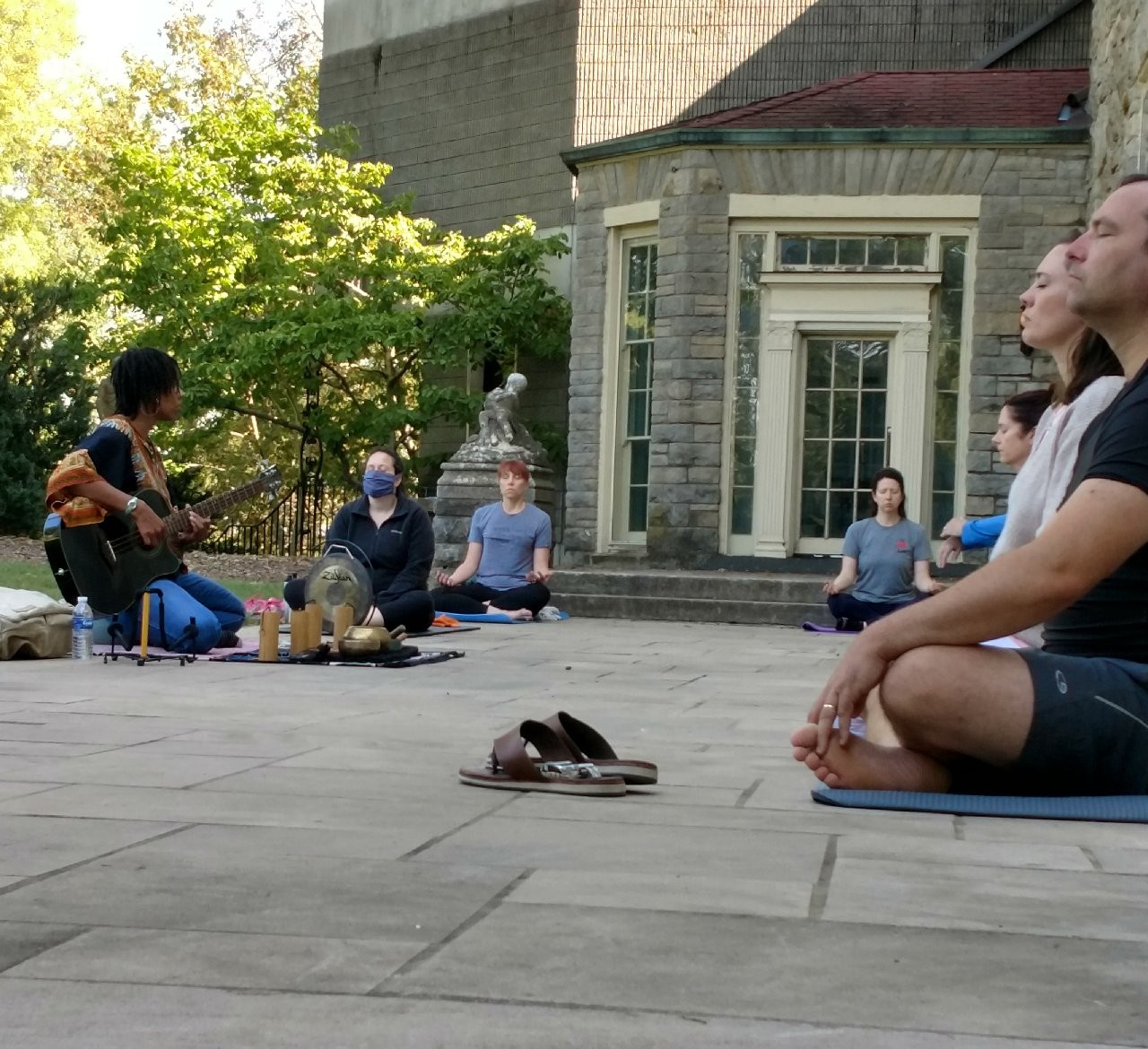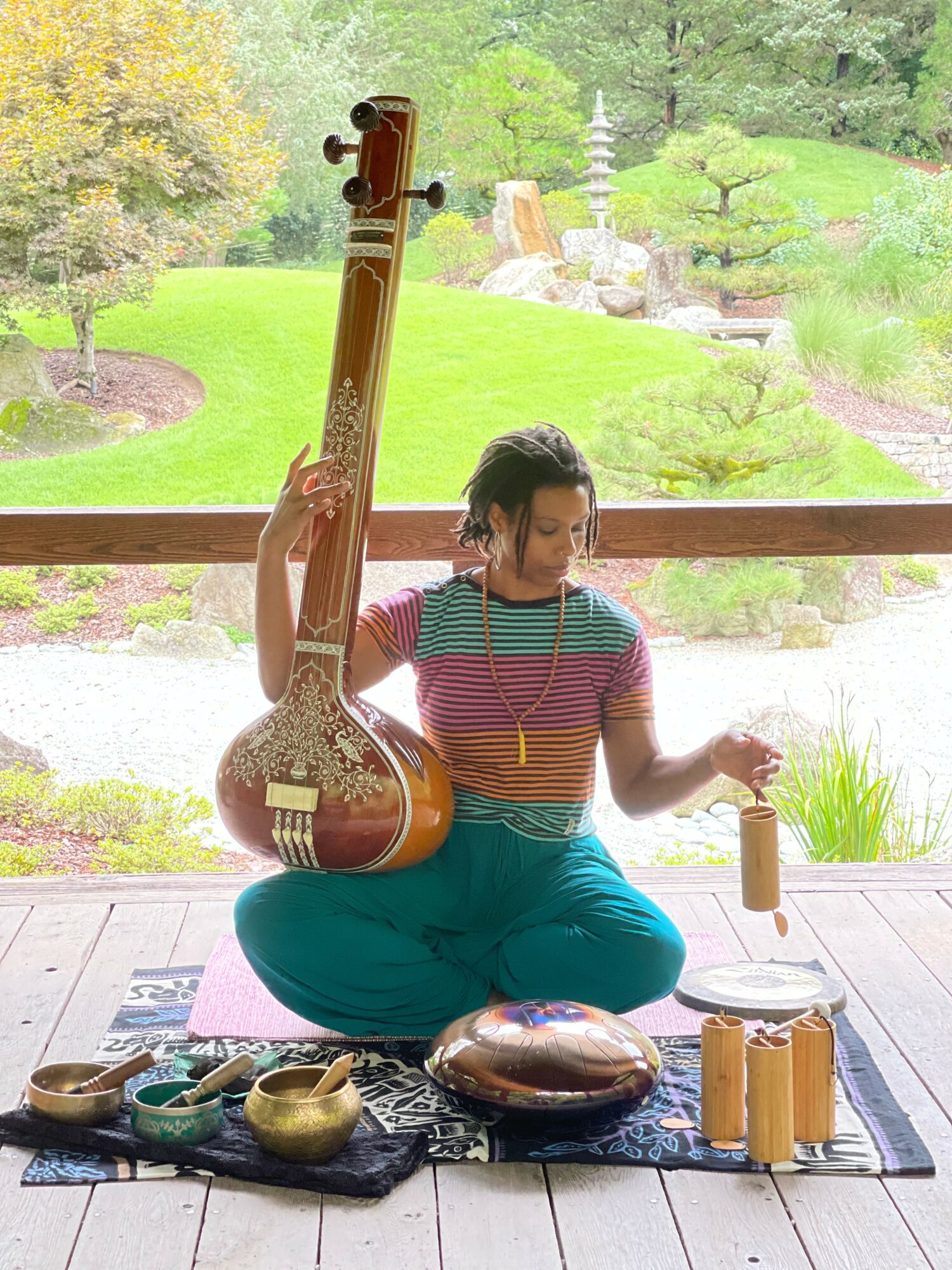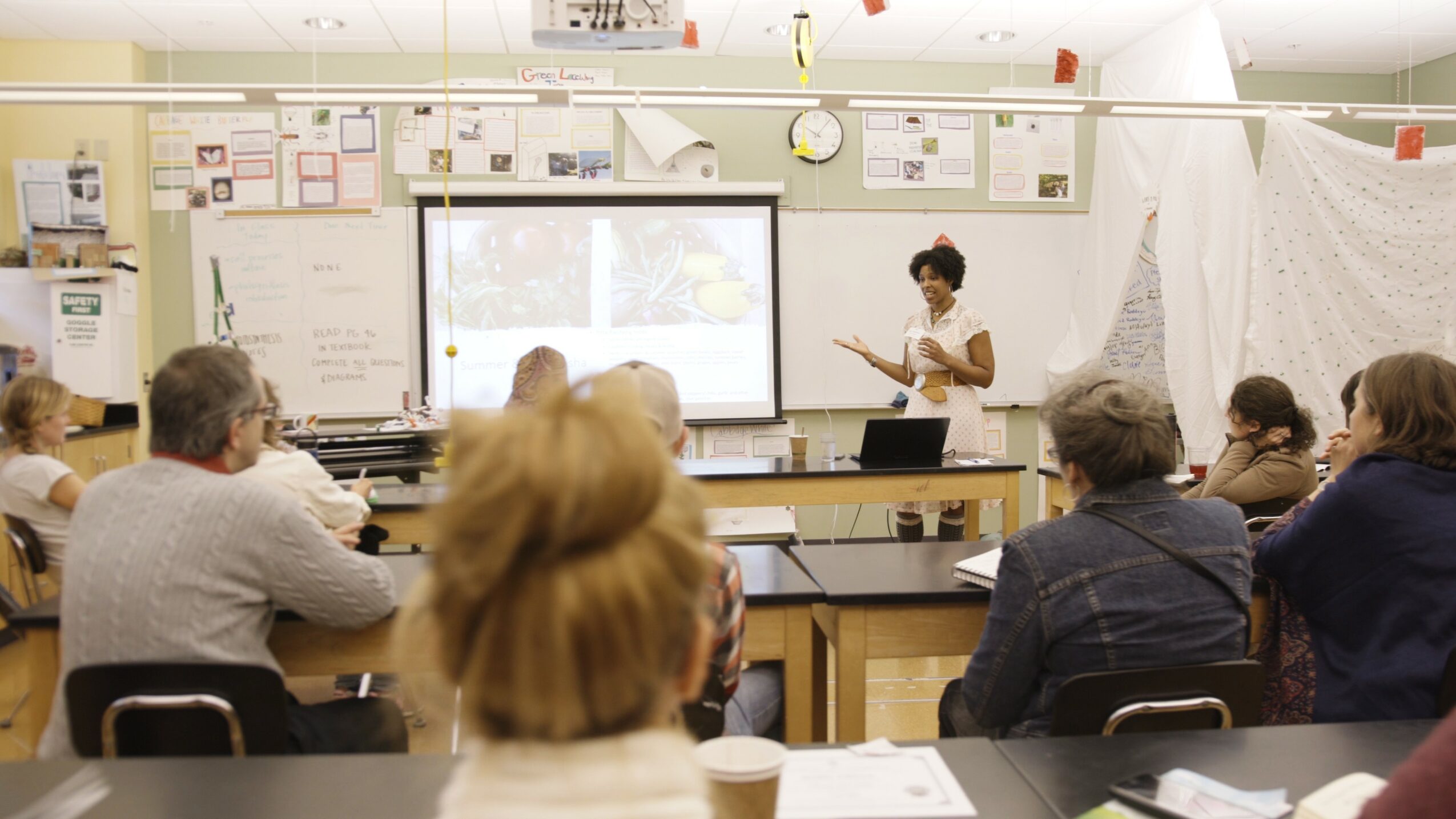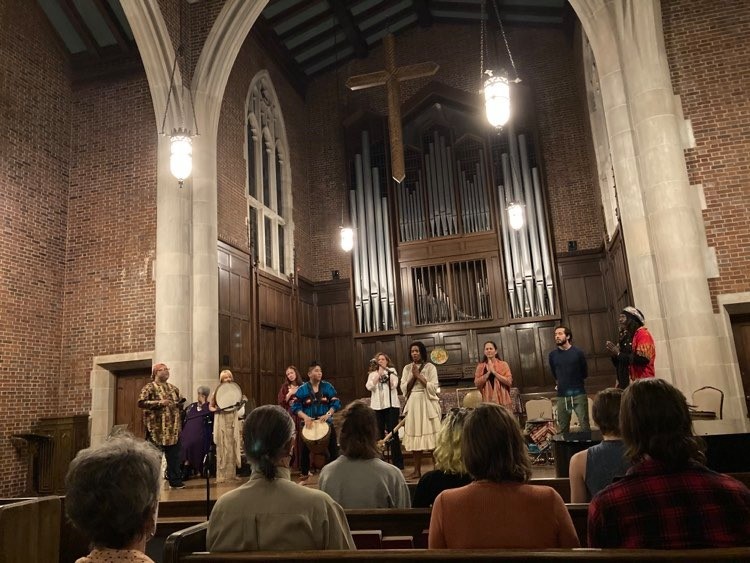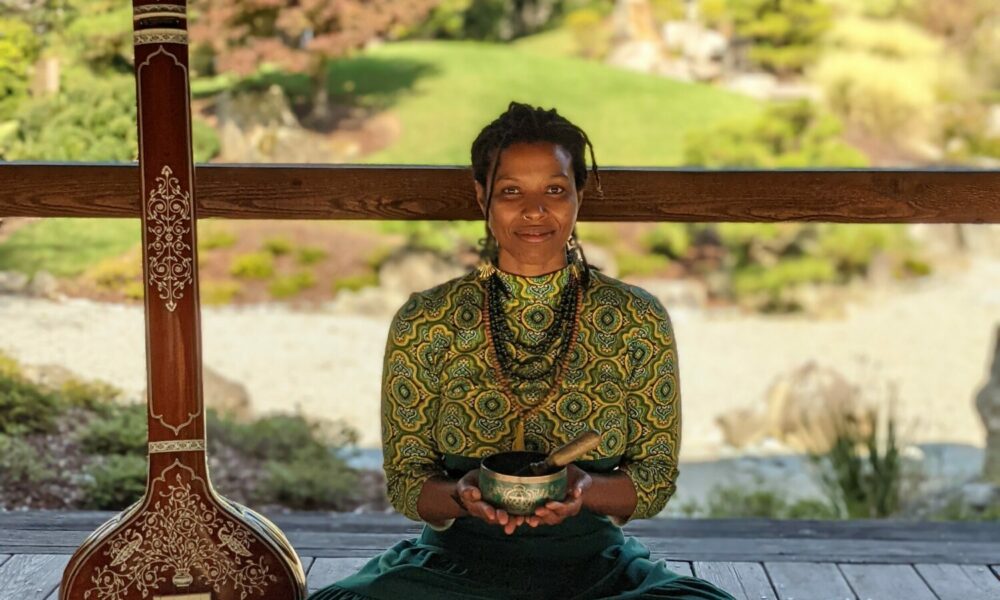

Today we’d like to introduce you to Jo-Jo Jackson.
Hi Jo-Jo, thanks for joining us today. We’d love for you to start by introducing yourself.
Thank you for interviewing me! My name is Jo-Jo, and I’m a self-employed Integrative Wellness Practitioner. People often know me as “The Yogi Bassist.” My moniker came about when I was a touring bassist for this indie-label band and “@yogibassist” was (and still is) my IG handle. During that time I was also a part-time yoga teacher and would share photos of myself doing various yoga postures in the different cities I visited & venues I performed. These days I offer therapeutic yoga & guided meditation classes, sound meditation sessions, ayurvedic wellness counseling services, continuing education for yoga teachers, and yoga student mentorships.
How I started and how I arrived at where I currently exist today is in some ways unexpected, yet in other ways, I can clearly perceive how I’ve been on this journey for a very long time. But I think for the purpose of this story I’ll start with when I started practicing yoga.
It was 2010, I was a “non-traditional” 27-year-old junior in college and getting into the forebears of Crossfit–PX90, “Insanity” and other HIIT-style DVD workout regimens. A workout friend recommended that if I like intense workouts I should try “hot yoga”; that it was very challenging and that I’d get a cold lavender towel at the end, which according to her felt amazing. I figured I’d give it a shot, and more than 10 years later I’m still giving yoga a “shot” but with significantly more intuition, intention & intelligence with respect to why I practice.
One thing I’ve learned about yoga is it has the ability to evolve into much more than just a practice; if you put active effort into practicing yoga you can come to understand & experience that it’s also a way of living plus a state of being. For me, the previous decade of cultivating the awareness & knowledge base to recognize this multilayered yet integrative nature of yoga has been key in becoming more firmly established in the yogic path.
But my yoga practice hasn’t always been so profound and studied. Much like many casually dedicated yoga students that want to heal the world with yoga and have a minimum of 6-12 months of practice, I signed up for a basic 230-hour yoga teacher training program in Asheville, NC, and seven months later in Spring 2014 I was a newly certified teacher. I spent my first year as a “certified” teacher leading hot-26 & hot vinyasa classes at a trendy east Nashville yoga studio until one Tuesday evening the studio owner came to my class, decided she absolutely did not like it so removed me from the schedule that night and–gasp!–said I could only teach restorative yoga.
At the time this was a serious insult & injury to my personal identity as a yoga practitioner as I held a competitive, narrow understanding of what yoga was supposed to look like and restorative was certainly not part of it. Yet, looking back at this discouraging experience as a new teacher, I’m happy the universe would have it that I was released from that studio as I don’t know if my path as a yoga student & teacher would have evolved in the way it has.
Can you talk to us a bit about the challenges and lessons you’ve learned along the way? Looking back would you say it’s been easy or smooth in retrospect?
Being black and self-employed as an Integrative Wellness Practitioner who oftentimes works in very white-centered wellness spaces certainly has not been a smooth road! As unlikely as it may appear in spaces that tout this idea of “love & light,” I’ve experienced a fair share of shade directed toward me while working in the wellness industry; especially when it comes to advocating for fair pay, not conforming to the model of power flow yoga or seeking to move into leadership roles. I’ve experienced these negative challenges primarily working at yoga studios. Because of this, I’m intentional with teaching at only select studios that are BIPOC-owned or white allies that share similar ethics & values.
During the previous 5-or-so years there has been an awakening in the yoga community & greater wellness community that we are not immune to the trappings of ignorance. I think that as yoga practitioners we have to hold ourselves accountable to higher standards that speak Truth to systemic abuses of power. Many practitioners in the yoga community are calling out acts of racialized microaggressions that diminish BIPOC practitioners’ experiences, plus speaking out against yoga studios justifying labor exploitation in the name of service or dedication.
Appreciate you sharing that. What else should we know about what you do?
While I offer a broad spectrum of integrative wellness practices, I specialize in a couple relatively unique offerings here in Nashville–those being Ayurveda & Nada Yoga.
Meaning “science of longevity/ life,” Ayurveda is a traditional Indian medical system that has eight major branches of clinical practice from pediatrics & surgery, to general therapeutics & reproductive health. My practice is within the scope of general therapeutics as an Ayurvedic wellness counselor. I work one-on-one with folks to develop personalized ayurvedic plans to guide individuals into living more holistic lifestyles aligned with the harmonious energies of nature and their unique mind-body constitution. These customized wellness plans provide tools such as yoga therapy, various 5-senses therapies (sound therapies, aromatherapy, bodywork, acupuncture, etc.), the principles of ayurvedic dietetics & herbology, elevating spiritual awareness, and other integrative modalities.
I also practice & teach Nada yoga or the yoga of sound. Nada yoga is a broad range of musical & tonal yogic practices that includes kirtan, raga & japamantra. I specialize in leading japamantra meditation, which can be described as therapeutic/ healing sound practice that starts with vocalizing & listening to a specific mantra, then shifting that external mantra chanting practice into an internalized practice of deep inner listening to experience the unstruck sound within. I accompany my japamantra practice with a “sound bath” of contemplative instruments such as the hypnotic drone of the tanpura, the whimsical dancing of Koshi chimes, or the waving splash of the tongue drum.
What I love about contemplative sound practice is its deep healing for everyone who is a part of it, including me as the practitioner leading the mantra meditation & creating the soundscape. I always feel calm yet elated after leading a sound meditation session. From an Ayurvedic perspective, sound meditation is a therapeutic practice that recalibrates your sense of hearing; aids in balancing your internal ether element; and pacifies symptoms of aggravated Vata dosha in the head & neck region such as ringing ears, twitching in the eyes or face, stiffness in the neck and problems with insomnia. From a contemporary research-based perspective, therapeutic sound demonstrates a proven ability to elevate your mood, alleviate anxiety, improve sleep, reduce stress & gradually shift baseline neural patterns. In addition, sound meditation is a very accessible practice that doesn’t require heavy physical exertion or special equipment so it’s beneficial & accessible for just about everyone.
I recently recorded my first sound meditation album at Scarritt Bennett Center’s Wightman Chapel, and I can’t wait to spread this healing music to more people through the album. Stay tuned for the release date to be announced very soon!
We all have a different way of looking at and defining success. How do you define success?
Success is an independent experience of feeling contentment, fulfillment & satisfaction with the best effort you put forth in any endeavor you seek to accomplish. To me, success is not dependent on the results of that effort, just as long as you know in your highest truth that you did your best. It’s hard to experience success when the results don’t turn out the way you want, but–at least in my experience–recognizing that you put forth your best effort can be a powerful act of self-compassion.
Through studying Ayurveda, I was introduced to a Vedic counseling tool called the “Purushartha,” which are the four major aims of life a person can use to recalibrate toward their “True North” of personal success. These four criteria are 1. a positive balance in your family & social life, 2. a positive balance in your work life, 3. a positive connection to spiritual purpose, and 4. a positive sense of freedom from the internal & external suffering that creates dysfunction in the body & ignorance in the mind.
When I take a moment to skillfully use the four life objectives of the purushartha to gauge my own levels of personal contentment, fulfillment & satisfaction, I find that I can make more precise & intentional changes in my life to experience greater success in my endeavors.
Contact Info:
- Email: [email protected]
- Website: www.theyogibassist.
com - Instagram: https://www.
instagram.com/yogibassist/ - Facebook: https://www.
facebook.com/ yogibassistnashville
